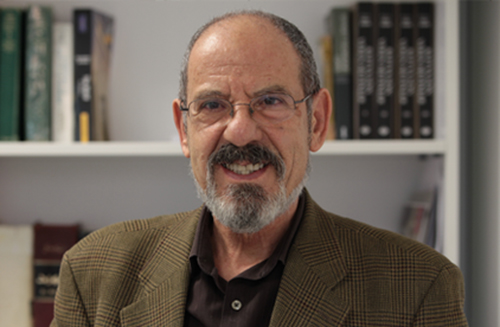By Arda Jebejian (Sociolinguist)
What if you were told there was a way to bolster your cognitive skills, increase your intelligence, and avoid Alzheimer’s, all you had to do was learn another language?
Bilingualism: the villain?
But bilingualism is often associated with a number of negative phenomena. From the early 19th century to about the 1960s, there was a widespread belief that the weak, oppressed linguistic minorities and the powerless in society are bilingual, and that bilinguals are lazy, stupid, left-handed, unreliable, and morally inferior.
Researchers report that bilingualism used to be and is still often associated with poverty, powerlessness, immigrants, minorities, and subordinate social positions. Individuals with a double linguistic and cultural identity are still often thought of as deviant, somewhat suspect, dangerous, impure, slightly abnormal, and linguistically and mentally confused. Bilingualism, then, is something a person must get away from if they wish to succeed in climbing the social ladder.
There are many stories of children who spoke their native language in school having their mouths washed with soap and water or being beaten with a cane. Kenyan author Ngugi wa Thiong’o recalls from his school days
One of the most humiliating experiences was to be caught speaking Gikuyu in the vicinity of the school. The culprit was given corporal punishment and was made to carry a metal plate around the neck with inscriptions such as I AM STUPID or I AM A DONKEY.
In the US and Australia indigenous children were stolen from families and forced into boarding schools where they were beaten if they spoke their mother language. African slaves who spoke the same indigenous languages were separated upon sale to ensure that they could not communicate to conspire for freedom. Those who were found speaking their indigenous language were savagely beaten.
Today, the English-Only movement’s agenda in the US, for example, is to ratify a constitutional amendment which would outlaw all bilingual programs and services provided by federal, state, and local governments; convince Congress to repeal bilingual ballot requirements under the Voting Rights Act; and sharply reduce federal programs for bilingual education. In the history of the US, English-Only campaigns have targeted almost every non-English-speaking group of immigrants, but the current anger is largely targeted at Spanish-speaking Latino immigrants. Spanish is often described as a “dirty language, one spoken by those who are lesser-than, who are other, who are not American.”
This is illustrated in Rodriguez’s autobiography Hunger of Memory, in which he describes the turning point in his language background when his teachers visited his parents and encouraged them to speak English with their children. Rodriguez describes the effect of this language switch on the family’s interaction at home thus:
The family’s quiet was partly due to the fact that, as we children learned more and more English, we shared fewer and fewer words with our parents. Sentences needed to be spoken slowly when a child addressed his mother or father. (Often the parent wouldn’t understand.) The child would need to repeat himself. (Still the parent misunderstood.) The young voice, frustrated, would end up saying, “Never mind”–the subject was closed. Dinners would be noisy with the clinking of knives and forks against the dishes.
Thinking in two languages
Interestingly, research has consistently found that bilingualism is a cognitive, social, and educational advantage and that, consequently, bilingual students tend to outperform their monolingual peers in key cognitive tasks.
Bilinguals can focus on the key parts of a problem and select the crucial parts of a solution. They apply this analytical skill in language, communication, thinking, and visual perception. This gives bilingual learners advantages in divergent and creative thinking and in analysis.
Because bilingual children are able to switch between languages, they develop more flexible approaches to thinking through problems. Their ability to read and think in two different languages promotes higher levels of abstract thought, which is critically important in learning.
Children who learn to read in their home language have a strong foundation to build upon when they learn a second language. They can easily transfer their knowledge about reading to their second language. Endorsing the latter view, McLaughlin states: “The child who has mastered two languages has a linguistic advantage over the monolingual child. Bilingual children become aware that there are two ways of saying the same thing.”
Bilingualism supports children to maintain strong ties with their entire family, culture and community. All of these are key parts of children’s developing identity. Bilingual children are also able to make new friends and create strong relationships in their second language. Thinking in a second language frees people from biases and limited thinking. Recent research has also found that children raised in bilingual households show better self-control which is a key indicator of school success. Researchers agree that school readiness and success for children who are dual language learners is tied directly to mastery of their home language.
Bilingualism can improve the brain
Various studies are cited as evidence that bilingualism improves the functioning of the brain in many ways. Bilingualism gives the brain a “workout that strengthens its cognitive muscles”.
Knowing more than one language makes the brain operate in more complicated ways, thus challenging it to grow, change, and adapt. For bilingual people, both languages are “always on,” always active in their brains, no matter which language they are speaking at the moment. Therefore, for a bilingual, the executive control system is used in every sentence they utter. That’s what makes it strong.
There is evidence that being bilingual can improve the brain by causing changes in brain structure. There is detectable growth in the hippocampus, which helps govern memory and mastery of new material, and in three areas of the cerebral cortex, where higher-order reasoning is processed. Recent research indicates that dementia and Alzheimer’s disease occurred four or five years later among people who spent their lives speaking two languages compared to those who spoke only one.
Conclusion
In summary, the arguments against bilingualism are inaccurate. And as Armenians, we are lucky. We already have a native language, Armenian. Other than the benefits an extra language offers, using Armenian at home will retard its extinction and help revitalize it. In February 2012, western Armenian joined UNESCO’s online Atlas of World Languages in Danger, earning the “definitely endangered” status, meaning it will become extinct by 2100.
The mother tongue, in Armenians’ case, the Armenian language, is
– a positive symbol of cultural pride
– a means of maintaining practical and emotional contact with the homeland and with oneself
– a tool that strengthens family cohesion, confidence, self-esteem and pride
– a means of socialization into one’s culture
– a vehicle for transmitting the cultural heritage of the past, reshaping it, and passing it on to the next generations.
Optimally parents’ efforts must be exerted to instill pride in the Armenian language and identity and create a linkage system, whereby children and adolescents utilize the Armenian language or relearn it, transmit it intergenerationally and use it to be “smart”.
Paul Lewis, Ethnologue editor, says,
Languages are not simply a collection of words. They are living, breathing organisms holding the connections and associations that define a culture. When a language becomes extinct, the culture in which it lived is lost, too. When language transmission breaks down, a part of human culture, history, and inherited knowledge is lost for ever.
Today certain Greek, Korean, Italian and Chinese communities in the US and Canada are mobilizing to maintain the languages of their forefathers in the diaspora, because they
– feel proud once more of their heritage
– have begun to develop a positive attitude toward their language
– have resolved to benefit from the values offered by their language
– have begun to become conscious of the importance of national unity
– have grasped the importance of their connectedness to their homeland, and
– have decided to cling to their unique religious beliefs and rites.
What Can WE Do?
We can do exactly what the Greeks, Koreans, Italians and Chinese are doing to maintain and revitalize their mother languages. It is as simple as that.










